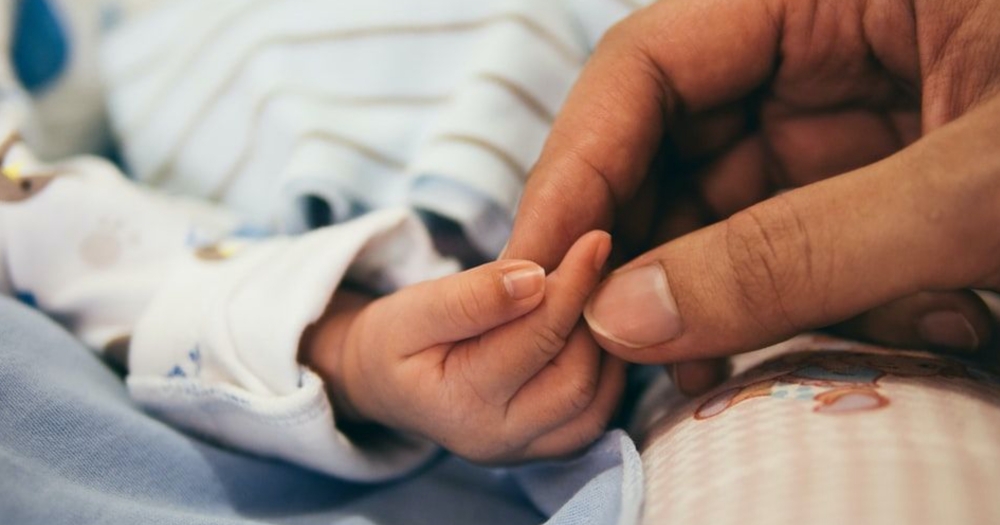I always thought getting pregnant is easy.
I mean, a moment of passion with your partner is all it takes…right?
Turns out, it’s a lot more complicated than that.
You see, there are a lot of factors to consider before planning to conceive.
Timing, for instance, is important.
Dr Wong Ker Yi, associate consultant at KK Women’s and Children’s Hospital (KKH)’s Department of Reproductive Medicine, explains that the majority of pregnancies occur when sexual intercourse takes place within the three-day interval just prior to ovulation.
If you don’t already know, ovulation refers to when the female’s egg is released from her ovary during the mid-cycle.
Age is another crucial factor to take note of.
Wong tells me that a woman’s egg quality and quantity will decline with increasing age.
And fertility starts to decline from 30 years old onwards.
At age 40, only 10 to 15 per cent of women will be able to conceive.
“So the best time to conceive is before a woman turns 30 years old. That’s when fertility potential is at its highest,” said Wong.
Infertility depends on both men and women
The same goes for men.
Infertility does not only affect women— a common misconception that most couples have.
Wong explains that a man’s increase in age has been associated with decrease in libido and sexual dysfunction.
In fact, approximately one-third of infertile couples in the world have significantly abnormal sperm counts.
When to seek medical help
Even after considering all the determining factors, there’s still a chance that a couple will fail to conceive.
You can either keep trying or you can seek medical help.
A woman and her partner should both go for a fertility treatment, said Wong, if they fail to conceive after a year of regular unprotected sexual intercourse.
She added that couples over 35 who have not been able to conceive after six months, even though they have been having regular intercourse without the use of contraceptives, may want to seek specialised medical attention.
What is fertility treatment?
Fertility treatment refers to medications that stimulate egg or sperm production, or procedures that involve the handling of eggs, sperm, or embryos.
Basically, it helps a couple conceive.
There are 3 main types of fertility treatment: Medications, surgical procedures, and assisted conception— including intrauterine insemination (IUI) and in vitro fertilisation (IVF).
According to Wong, a typical fertility treatment cycle will take about four to six weeks.
Patients who are younger generally have a better chance at pregnancy after undergoing fertility treatment.
“However, the chances of success will depend very much on individual circumstances,” Wong added.
Those who are unsuccessful on their first try can go for the treatment again.
Wong advised that a woman should wait for at least one to two menstrual cycles after the last treatment before trying again.
But an unsuccessful treatment cycle can cause significant stress, thus the emotional and social readiness of the couple have to also be considered before starting the next cycle.
TCM fertility treatment
Treating infertility goes beyond modern fertility treatments too.
Traditional chinese medicine (TCM) can also complement modern fertility treatments to improve a couple’s chances of conceiving.
TCM Physician Ho Chin Ee of Thomson Chinese Medicine, explained how a woman’s menstrual cycle is closely related to specific TCM organs: Spleen, liver, kidney, and the uterus systems.
“So basically, when we do all the (TCM) treatments, it is to regulate and create a new balance in the body so that it can help with fertility,” said Ho.
TCM and Modern medical treatments complement each other
Most patients who go for TCM fertility treatments are strongly advised to go for modern medical fertility screening as well.
This is to provide their TCM physician a more objective picture of their current fertility health.
Ho explained that TCM can complement and support modern fertility treatments on top of being an alternative choice.
In TCM fertility treatments in the absence of modern medical treatment, herbal medicines are often prescribed to patients.
However, there may be concerns of drug interactions with modern medicines, so the most common form of TCM fertility treatment that complements modern medical fertility treatment will be acupuncture.
Acupuncture increases the blood flow to the ovaries and pelvic area, thus helping with the thickness and quality of the endometrium lining, as well as quality of eggs.
It is also good for reducing the anxiety of patients who are undergoing modern fertility treatments, said Ho.
She added: “There have been studies that show that acupuncture complementing the modern fertility treatments can improve the success rate of fertility.”
Ho emphasised that it is important to not self medicate by reading information online.
The information online may not be accurate and patients are not equipped with the right knowledge to self-diagnose and self-medicate.
It may complicate their condition further, making it more challenging for TCM physicians to help regulate their fertility health.
Hence, it’s best that they consult a professionally accredited TCM physician to seek fertility help.
Webinars on fertility
For a better understanding of both modern and TCM fertility treatments, couples can attend the Know Your Fertility Wellness 2020 Webinars on Nov. 6 and Nov. 13.
The webinars are part of a campaign by voluntary welfare organisation I Love Children (ILC).
The campaign aims to bring awareness to the importance of fertility health checks, and how couples (in particular those who are looking to start a family), should make an effort to get their fertility health checked.
Visit ILC’s website for more information.
Top image by Aditya Romansa via Unsplash.
This sponsored article by I Love Children made the writer want to have an army of babies in the future.
If you like what you read, follow us on Facebook, Instagram, Twitter and Telegram to get the latest updates.
